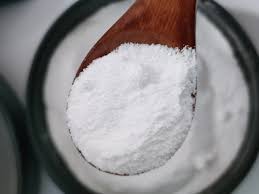A recent study led by the Madras Diabetes Research Foundation (MDRF) in Chennai has found that replacing table sugar (sucrose) with small quantities of the artificial sweetener sucralose may be a safe and effective strategy for managing diabetes. Published in the journal Diabetes Therapy, the study provides promising insights for individuals with diabetes looking to reduce their sugar intake without compromising their glycemic control.
The study, which examined the effects of substituting sucrose with sucralose in daily beverages such as coffee and tea, involved 179 Indian participants with diabetes. Over a 12-week period, participants were divided into two groups: one that replaced added sugar with sucralose-based sweeteners and a control group that continued to use sucrose.
Results indicated that while there was no significant change in HbA1c levels—an important marker of long-term glucose control—those using sucralose showed slight improvements in body weight, waist circumference, and body mass index (BMI). Specifically, the intervention group experienced an average weight loss of 0.3 kg, a decrease in BMI by -0.1 kg/m², and a reduction in waist circumference by -0.9 cm.
Dr. V. Mohan, senior diabetologist and Chairman of MDRF, emphasized that judicious use of non-nutritive sweeteners like sucralose can help reduce calorie and sugar intake, potentially aiding dietary compliance for people with diabetes. “This can help cut down calories and sugar intake, and increase dietary compliance. Judicious use of NNS like sucralose within the permissible Acceptable Daily Intake (ADI) in daily beverages like tea and coffee appears to be safe,” Dr. Mohan stated.
The study’s relevance is underscored by contrasting global guidelines. Last year, the World Health Organization (WHO) advised caution regarding non-nutritive sweeteners (NNS) for weight control, though these guidelines were primarily intended for individuals without diabetes. This recommendation raised concerns among healthcare providers and the public about the use of NNS among diabetics.
Dr. Mohan noted that the dietary habits of Indians, who commonly use NNS to replace sugars in daily beverages, differ significantly from those in other parts of the world. In India, high carbohydrate consumption, including white rice and refined wheat, exacerbates the risk of diabetes, making the findings particularly relevant for the Indian population.
As the use of sucralose becomes more prevalent, ongoing research will further clarify its long-term safety and efficacy. Dr. Mohan assured that additional studies are underway to continue evaluating the impact of sucralose on diabetes management.











